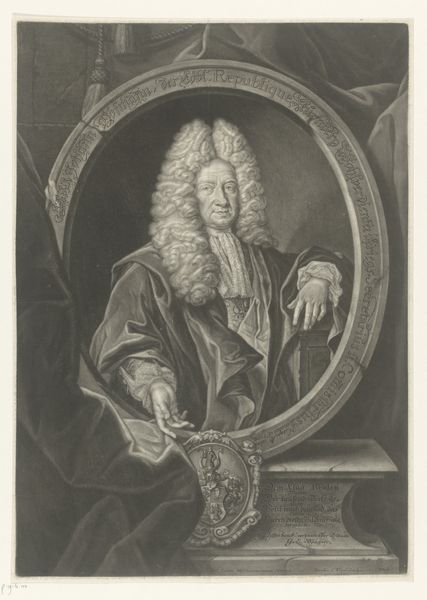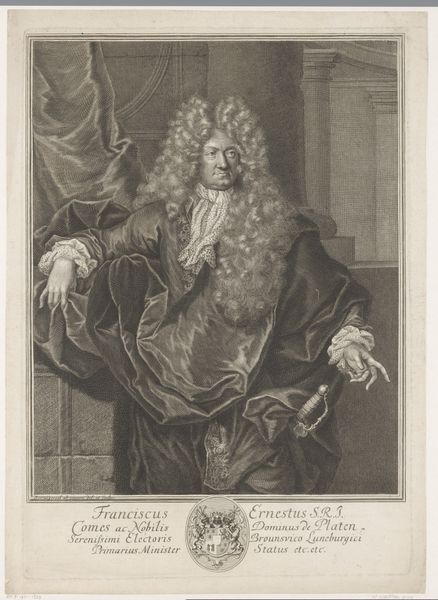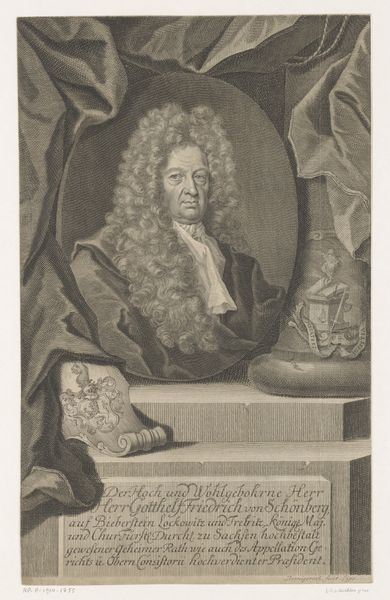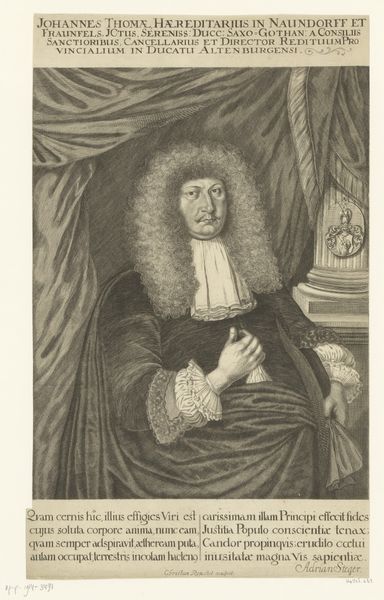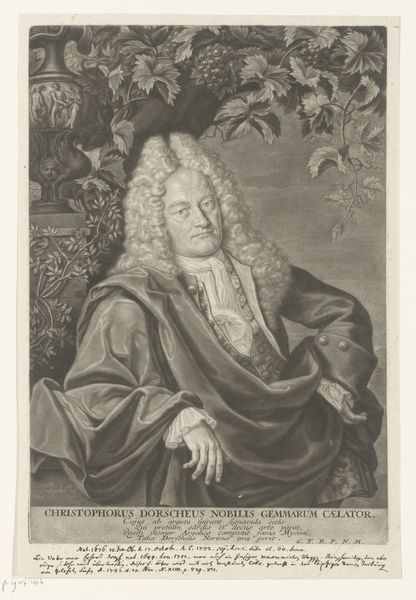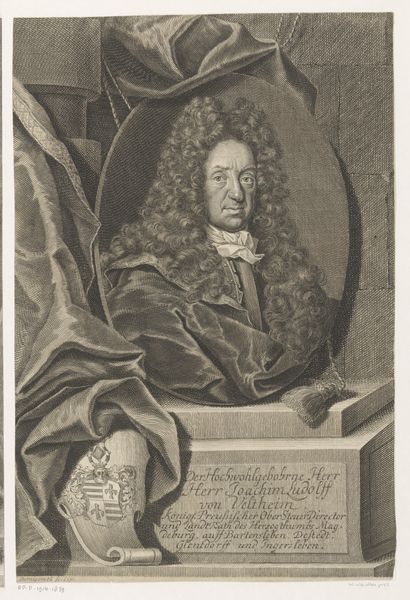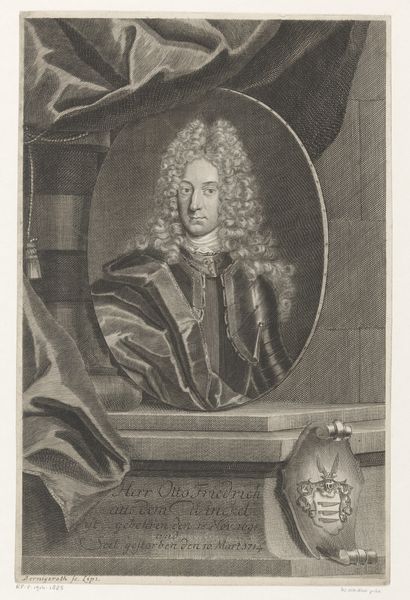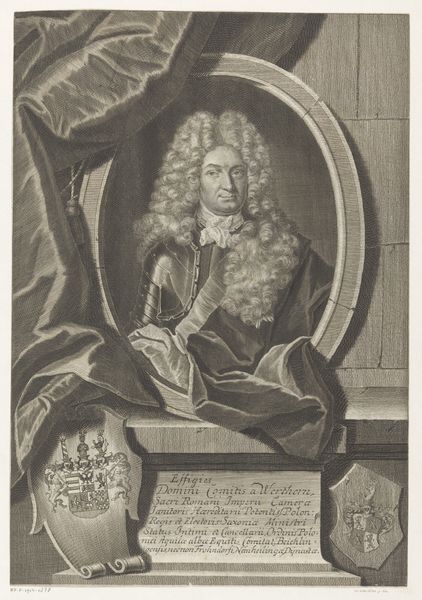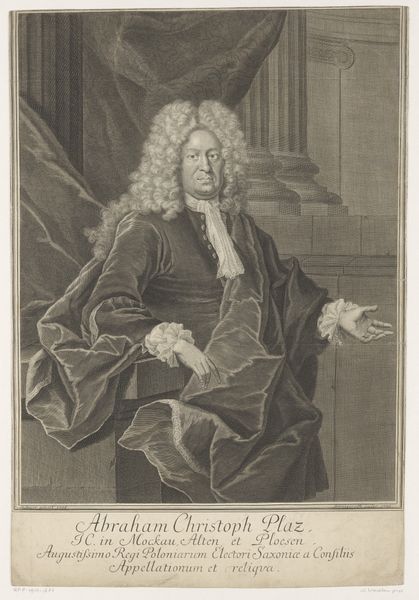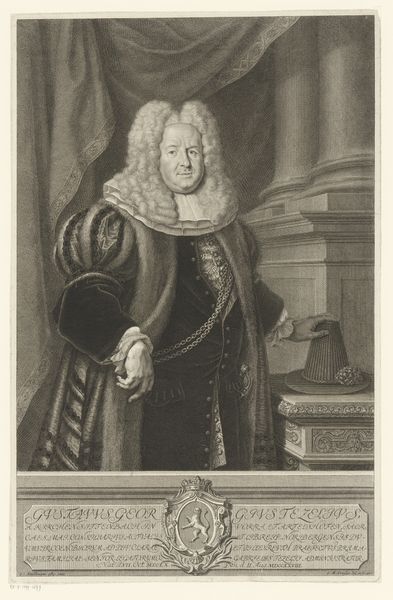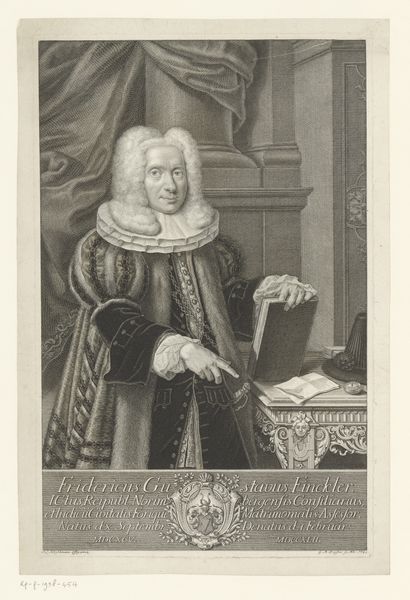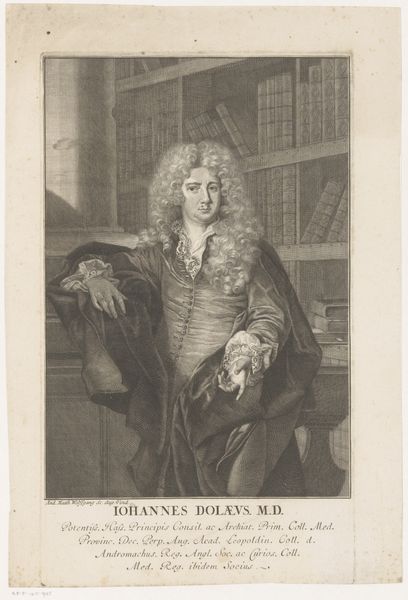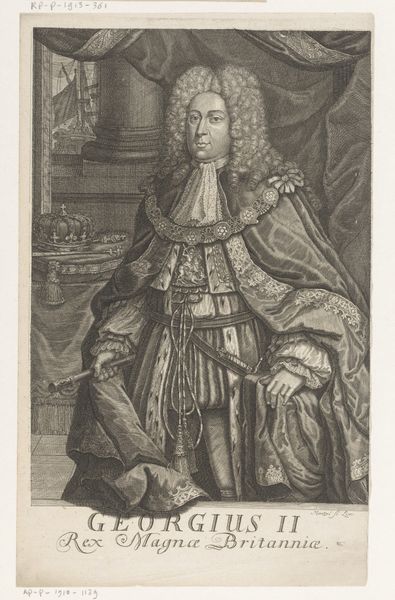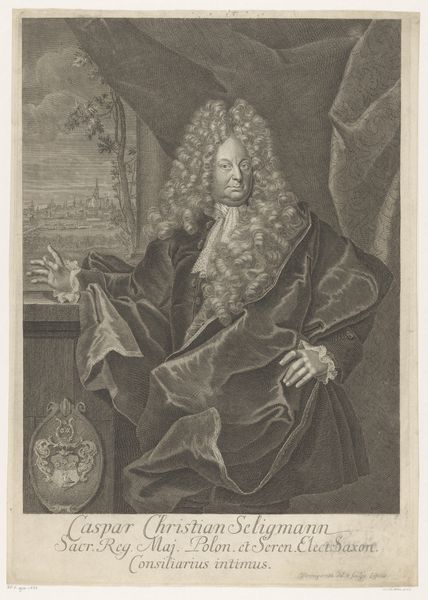
drawing, paper, chalk
#
portrait
#
drawing
#
baroque
#
paper
#
chalk
#
portrait drawing
#
history-painting
Copyright: Public Domain
Hyacinthe Rigaud rendered this portrait of Nicolas Le Camus using chalk, capturing the essence of power and intellect in his subject. Note the grand wig, a symbol of status in the 17th and 18th centuries, designed to convey authority and wisdom. The wig’s origins can be traced back to practical necessities, yet it evolved into a theatrical display of social standing. In ancient Egypt, wigs served functional and symbolic purposes, and later, in the courts of Europe, they became extravagant markers of prestige. Reflect upon the psychological weight of such adornment. Does it not suggest an attempt to mask vulnerability, to project an image of invulnerability? The book held by Le Camus reinforces this impression, signifying knowledge and control. This emblem has traversed time, from ancient scrolls to modern publications, consistently embodying the power of the written word. Such symbols are not static; they constantly resurface and evolve in new contexts, enriching our comprehension of history.
Comments
No comments
Be the first to comment and join the conversation on the ultimate creative platform.
